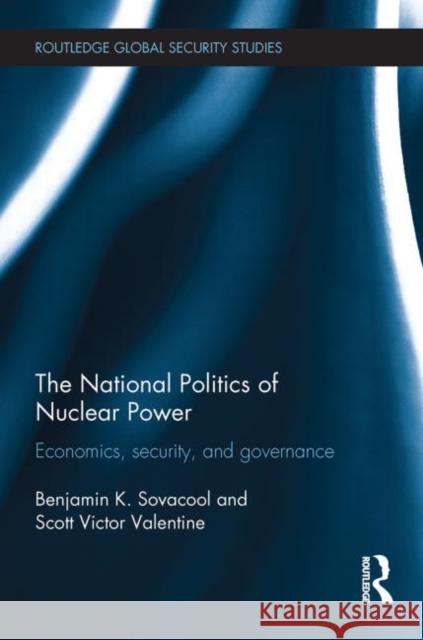The National Politics of Nuclear Power: Economics, Security, and Governance » książka
The National Politics of Nuclear Power: Economics, Security, and Governance
ISBN-13: 9780415748100 / Angielski / Miękka / 2013 / 312 str.
The National Politics of Nuclear Power: Economics, Security, and Governance
ISBN-13: 9780415748100 / Angielski / Miękka / 2013 / 312 str.
(netto: 227,12 VAT: 5%)
Najniższa cena z 30 dni: 216,55
ok. 16-18 dni roboczych.
Darmowa dostawa!
This book offers a comprehensive assessment of the dynamics driving, and constraining, nuclear power development in Asia, Europe and North America, providing detailed comparative analysis. The book formulates a theory of nuclear socio-political economy which highlights six factors necessary for embarking on nuclear power programs: (1) national security and secrecy, (2) technocratic ideology, (3) economic interventionism, (4) a centrally coordinated energy stakeholder network, (5) subordination of opposition to political authority, and (6) social peripheralization. The book validates this theory by confirming the presence of these six drivers during the initial nuclear power developmental periods in eight countries: the United States, France, Japan, Russia (the former Soviet Union), South Korea, Canada, China, and India. The authors then apply this framework as a predictive tool to evaluate contemporary nuclear power trends. They discuss what this theory means for developed and developing countries which exhibit the potential for nuclear development on a major scale, and examine how the new "renaissance" of nuclear power may affect the promotion of renewable energy, global energy security, and development policy as a whole. The volume also assesses the influence of climate change and the recent nuclear accident in Fukushima, Japan, on the nuclear power industry's trajectory. This book will be of interest to students of energy policy and security, nuclear proliferation, international security, global governance and IR in general.











